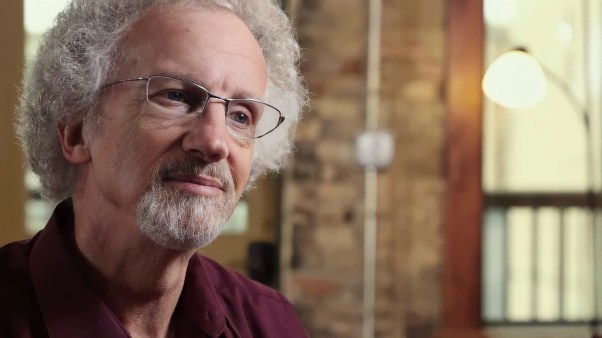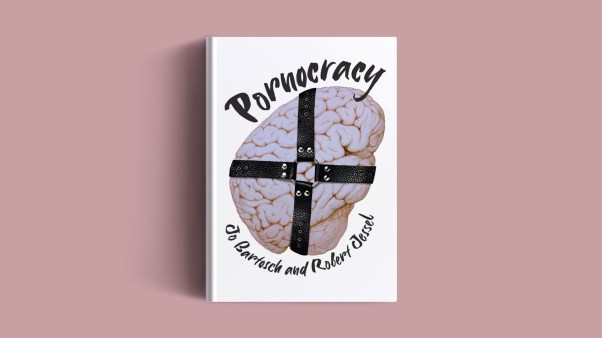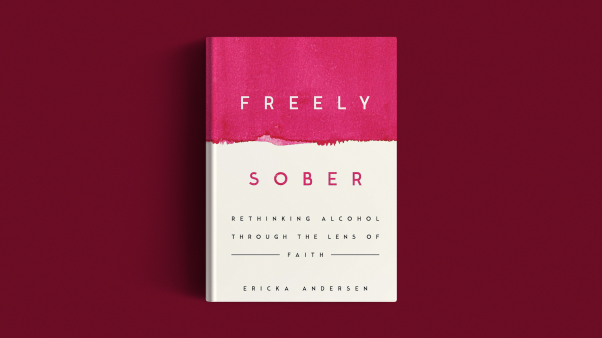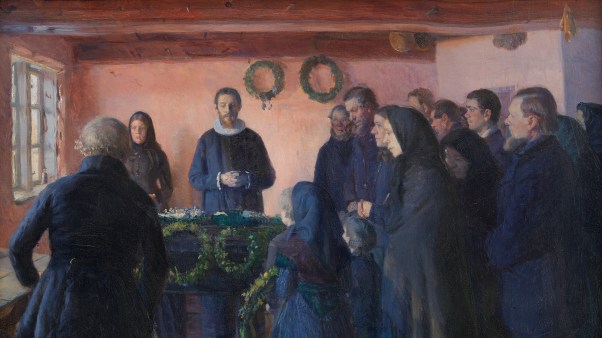The centuries of yearning behind the fulfillment of our Lord’s appearance have myriad small incarnations in the hearts of his people. We’re all waiting on something. Waiting for God to fix a problem. Waiting for him to give us the longing of our hearts. Waiting to see him face to face. It’s tempting to let the season underscore what we still don’t have, even though another year has rolled around. But how much richer it is, I am learning, to embrace the stark solemnity of the great universal waiting for the Messiah and to find a parable of it in my own desires.
The expectancy of Advent throws a reflected light over the waiting days of our lives. “All my desire is before thee,” we whisper (Ps. 38:9, KJV). Both behind and before us, a multitude sends up an echo that has not been silenced since God first taught people to hope in his coming to the human race—and to each of us in the intimacy of our need.
Christmas is a joyous season, but it can also be a difficult one. If we’re honest, many of us embark upon the holidays with conflicting emotions: We are grateful and we are begrudging; we have much to anticipate and we have much to do. We ought to be excited, we tell ourselves, rejoicing in our coming King. But, in reality, we are exhausted, spent with the effort of managing life in an increasingly complex world. The very thought of squeezing all of that extra cooking, cleaning, shopping, wrapping, decorating, and socializing into our already crowded lives makes some of us want to hyperventilate.
Conversely, some of you may long for the bustle of a family or a community to care for, while others still might be grieving, navigating a shadowland against which the fanfare of the holidays stands out like an insult to your loss. Loneliness, deferred hopes, disappointment, bereavement—Christmas, for all its imagined or remembered joys, can only make things worse.
If you fall into any of these categories—and I imagine that each of us can identify with at least one of them from time to time—I have very good news: Advent is the place for you. Advent is where the “now” of God’s active and present love for us meets the “not yet” of our unfulfilled longings, and it is specifically set apart for the wounded and the waiting, the weary and the jaded. Historically, this has been a season of soul-searching devotion, a “little Lent” to prepare our hearts for the astonishing gift of God-with-us. But it is also a time to reverently affirm that all is not as it should be or indeed as it will be.
The story does not end with the Incarnation or even the Resurrection. All creation yearns toward the second coming of Jesus.
Beyond the bright sadness of Advent beams the fulfilled promise of Christmas and the future hope of perfect joy. And while Christmas is a feast in both the sacred and the temporal sense, Advent can be something of a fast, helping us identify excesses and nonessentials in our lives. The gift of this season is space, not to fill but to receive. There is permission here, in this anteroom of Christmas, to choose presence over productivity and quality over quantity. We may have myriad burdens and responsibilities, but Advent clears our heads, inviting us to work—and to live—from a place of sufficiency and peace. Advent makes room for us so that we, in turn, can make room for Christ.
And so, my prayer for you amid all the much ado of this season is that you would find a resting place in God’s unconditional love. May you have the freedom to celebrate a truth that transcends your circumstances and the courage to set aside any trappings that do not serve your relationships. May you keep Christmas in a way that embodies what you believe. Above all, may you lift your heads with the freshened hope that has comforted Christians for centuries: Even so, come, Lord Jesus.
Lanier Ivester is the author of Glad & Golden Hours: A Companion for Advent & Christmastide. She maintains a small farm with her husband.
While it’s lovely to plan and prepare special meals this time of year, keep in mind that some of the most memorable hospitality can also be the most spontaneous. With a few quick recipes in your arsenal and ingredients in your pantry, an unexpected visitor will feel like a cherished guest. Which is, after all, what hospitality is all about.
Cardamom Hot Chocolate
Cardamom pods can be found at Indian grocery stores or purchased online from bulk spice dealers. If you can’t find the dried pods, you can substitute up to 1 teaspoon of ground cardamom, whisking it well into the milk as it simmers. This chocolate is very rich, which is why I serve it in small “demitasse” (literally, “half cup”) teacups.
Serves 6
12 dried cardamom pods
4 cups milk
5 ounces bittersweet chocolate, chopped
4 ounces semisweet chocolate, chopped
1 cup heavy cream
2 tablespoons packed brown sugar,
plus more to taste
2 teaspoons Madagascar bourbon vanilla
Crush the cardamom pods with the butt of a knife and combine with the milk in a medium-sized saucepan. Heat cardamom and milk over low heat and simmer, without boiling, for 10 minutes. Add chocolate, heavy cream, and brown sugar, whisking until the chocolate has completely melted and the mixture is hot. Remove from heat and lift out the cardamom pods with a slotted spoon. Add more sugar to taste, if needed, and stir in vanilla. Serve immediately.
Tapenade Crostini
Tapenade is a briny Provençal spread traditionally made of olives, capers, olive oil, and lemon juice. For this recipe, a good-quality jarred version combined with goat cheese and fresh thyme creates an effortless two-bite appetizer. The crostini toasts can be made up to one week ahead and stored at room temperature in a sealable plastic bag.
Serves 12
1–2 baguettes (8–10 ounces total) sliced ¼ inch thick (48 slices)
¾ cup olive oil
Kosher salt and freshly ground black pepper
¾ cup jarred green- or black-olive spread
3 tablespoons fresh thyme leaves,
plus tips for garnish (or 1 teaspoon dried thyme)
5 tablespoons finely chopped walnuts
¼ cup dried currants
1 small log goat cheese (4–5 ounces), softened
Preheat the oven to 350 degrees. Arrange the baguette slices on two large, parchment-lined rimmed baking sheets. Using a pastry brush, brush both sides of each slice with oil and season with salt and pepper. Bake until golden, 15–20 minutes, rotating the pans halfway through. Allow to cool on baking sheets. In a small bowl, combine the olive spread, thyme leaves, walnuts, and currants. Spread 1–2 tablespoons of goat cheese onto each crostini and top with 1–2 teaspoons olive mixture. Garnish with thyme tips (or sprinkle lightly with additional dried thyme) and serve immediately.
Essay and recipes adapted from Glad & Golden Hours: A Companion for Advent & Christmastide (Rabbit Room Press, 2024); and from The Glad & Golden Hours Kitchen Companion (Rabbit Room Press, 2025).














